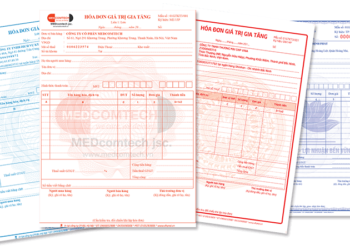Businesses can use inventory for internal use. However need to pay attention to the purpose of use to comply with regulations.
TLT LEGAL LLC – VIETNAM BAR FEDERATION
Legal grounds:
- Decree No. 123/2020/ND-CP;
- Circular No. 219/2013/TT-BTC;
- Circular No. 26/2015/TT-BTC.
Businesses can use their own inventory for their own use. However, businesses need to clearly distinguish the following two uses:
- For internal use (similar to purchasing goods on the market for business use)
- Or the purpose of making input materials to continue with other production stages, transferring between warehouses.
For each different purpose, there will be corresponding documents and separate handling of tax obligations.
Pursuant to Clause 1, Article 4 of Decree No. 123/2020/ND-CP as follows:
Article 4. Principles for creating, managing and using invoices and documents
- When selling goods or providing services, the seller must issue an invoice to deliver to the buyer (including cases of goods and services used for promotion, advertising, sample goods; goods and services used for to give, donate, exchange, pay on behalf of wages to employees and for internal consumption (except for goods circulated internally to continue the production process); export goods in the form of loans, borrow or return goods) and must fully record the content as prescribed in Article 10 of this Decree. In case of using electronic invoices, it must follow the tax authority’s standard data format as prescribed in Article 12. This Decree.
Pursuant to Clause 4, Article 7 of Circular No. 219/2013/TT-BTC amended and supplemented by Circular No. 119/2014/TT-BTC as follows:
Article 7. Taxable price
4. Taxable prices for products, goods and services for internal consumption.
Internally circulated goods such as goods released for internal warehouse transfer, release of materials, semi-finished products, to continue the production process in a business establishment or goods and services provided by the establishment release or supply used to serve business activities is not required to calculate and pay VAT.
…
Pursuant to Point b, Clause 1, Article 16 of Circular No. Circular No. 39/2014/TT-BTC, amended and supplemented by Circular No. 26/2015/TT-BTC as follows:
Article 16. Making invoices
1. Principles of invoicing
b) Sellers must issue invoices when selling goods and services, including cases where goods and services are used for promotion, advertising, or sample goods; goods and services used to give, donate, exchange, or pay instead of wages to workers (except for goods circulated internally, consumed internally to continue the production process)
…
According to the above regulations:
- If the goods are released for internal use to serve business activities: the enterprise must issue an invoice, but does not have to calculate and pay VAT, so the VAT line should be crossed out on the invoice. The buyer on the invoice for internal use is also the business.
- If goods are released from warehouse for the purpose of continuing another production stage, internal storage transfer: the enterprise does not need to issue an invoice. Instead, businesses use warehouse delivery notes for management purposes.





